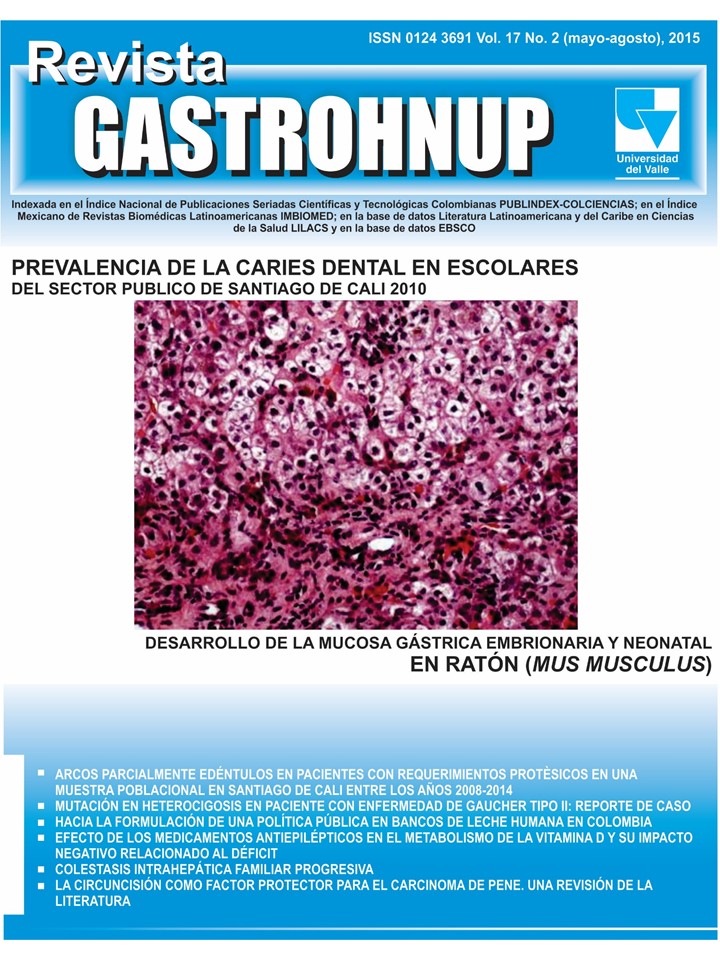TOWARDS THE FORMULATION OF PUBLIC POLICY IN HUMAN MILK BANKS IN COLOMBIA
Main Article Content
Public health policies increasingly take more
importance for the transition that the world has suffered
from the demographic, epidemiological and
nutritional, which is a concern for all governments.
Minor changes to this transition have generated so
rampant, difficulties to perform an adequate quality of
life and welfare of its inhabitants. As for maternal and
child health, changes are evident in the decline of
breastfeeding with their multiple physiological
disadvantages, especially for the baby, plus the costs of
health care for this population group. Around this topic,
seen from biopolitics the Human Milk Bank (HMB) is
an opportunity to reduce the rates of infant morbidity
and mortality, improve maternal health and go a step
forward in terms of programs that encourage the
practice of breastfeeding. The Brazilian model,
pioneered this strategy in public health, encourages the
countries concerned, from the Latin American Network
of Human Milk Banks (Red IberBHL), to accede to
motivate the formulation of a policy and strengthen
their actions to those already they are linked. Through
analysis of this strategy and the present regulations in
each country, in the case of Colombia, one can generate
actions that contribute to the formulation of a policy
that lays the foundation for effective implementation of
the Human Milk Banks.
importance for the transition that the world has suffered
from the demographic, epidemiological and
nutritional, which is a concern for all governments.
Minor changes to this transition have generated so
rampant, difficulties to perform an adequate quality of
life and welfare of its inhabitants. As for maternal and
child health, changes are evident in the decline of
breastfeeding with their multiple physiological
disadvantages, especially for the baby, plus the costs of
health care for this population group. Around this topic,
seen from biopolitics the Human Milk Bank (HMB) is
an opportunity to reduce the rates of infant morbidity
and mortality, improve maternal health and go a step
forward in terms of programs that encourage the
practice of breastfeeding. The Brazilian model,
pioneered this strategy in public health, encourages the
countries concerned, from the Latin American Network
of Human Milk Banks (Red IberBHL), to accede to
motivate the formulation of a policy and strengthen
their actions to those already they are linked. Through
analysis of this strategy and the present regulations in
each country, in the case of Colombia, one can generate
actions that contribute to the formulation of a policy
that lays the foundation for effective implementation of
the Human Milk Banks.
- Milk Banks
- Public policie
- Breastfeeding
- Health promotion
BEJARANO RONCANCIO, J. J. (2015). TOWARDS THE FORMULATION OF PUBLIC POLICY IN HUMAN MILK BANKS IN COLOMBIA. GastrohNup, 17(2). Retrieved from https://revistas.univalle.edu.co/index.php/gastrohnup/article/view/1394
Downloads
Download data is not yet available.
